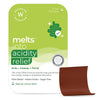As we grow older, our body’s rhythm subtly begins to change. One of the most significant—yet often overlooked—shifts happens within the digestive system. That effortless digestion you once took for granted might not feel so effortless anymore. The intricate balance of enzymes, acids, and gut flora that once operated seamlessly may begin to shift, leading to noticeable differences in how we process and absorb nutrients. Understanding how aging affects digestion is key to preserving overall well-being, energy, and nutrient absorption in the long run.
Let’s explore what happens to the digestive system as we age and how to support it—gracefully and effectively.
The Link Between Aging and Digestion
With age, the gastrointestinal tract doesn’t operate quite like it used to. There’s a natural slowing down of key digestive processes that can lead to various discomforts—from mild bloating to more persistent issues like acid reflux in older adults.
Some of the main age-related changes in digestion include:
1. Decreased Saliva Production
Saliva plays a crucial role in the initial stages of digestion, aiding in the breakdown of food and facilitating swallowing. As we age, saliva production can diminish, leading to difficulties in chewing and an increased risk of dental issues. (NIH) This reduction not only affects oral health but also sets the stage for digestive challenges further down the line.
2. Changes in Esophageal Motility
The esophagus relies on coordinated muscle contractions to transport food to the stomach. Aging can lead to a decline in these muscular movements, resulting in slower transit times and a heightened risk of food lingering in the esophagus. This stagnation can contribute to discomfort and increase the likelihood of acid reflux episodes. (NIH)
3. Reduction in Stomach Acid Production
Is there a link between stomach acid & aging - A common misconception is that heartburn and indigestion stem from excessive stomach acid. In reality, many older adults experience a decline in hydrochloric acid production, a condition known as hypochlorhydria. This decrease can impair the digestion of proteins and the absorption of essential nutrients like vitamin B12, iron, and calcium. (NIH)
4. Altered Small Intestine Function
The small intestine is pivotal for nutrient absorption. With age, its efficiency can wane, leading to reduced absorption rates. This decline can manifest in nutrient deficiencies, even when dietary intake remains consistent. (NIH)
5. Shifts in Gut Microbiome Composition
Our gut microbiome, a diverse community of microorganisms, plays a vital role in digestion, immunity, and overall health. Aging can disrupt this delicate balance, leading to a decrease in beneficial bacteria and an increase in harmful strains. Such imbalances have been linked to various health issues, including inflammation and metabolic disorders.(NIH)
Common Digestion Problems in Older Adults
1.Acid Reflux and GERD
The weakening of the lower esophageal sphincter, combined with delayed stomach emptying, can lead to the backflow of stomach contents into the esophagus. This condition, known as gastroesophageal reflux disease (GERD), is prevalent among older adults and can cause persistent heartburn and discomfort.(NIH)
2. Constipation
Slower intestinal motility, reduced physical activity, and certain medications can contribute to constipation. This condition not only causes discomfort but can also lead to complications like hemorrhoids and diverticulosis if not addressed.(NIH)
3. Food Intolerances and Sensitivities
Aging can affect the production of digestive enzymes, leading to difficulties in breaking down certain foods. Lactose intolerance, for instance, becomes more common as lactase enzyme levels decline. Additionally, changes in the gut lining can increase sensitivity to various food components. (NIH)
Supporting Digestive Health Through Nutrition and Supplements
Maintaining digestive health in later years requires a proactive approach. Incorporate a balanced diet rich in fiber- oats, chia seeds, leafy greens, lean proteins, and fermented foods like yogurt and kefir. Don’t forget to hydrate regularly, avoid acidity-causing foods as much as possible, reduce processed food intake, and maintain regular meal times. Additionally, certain acid relief supplements can offer targeted support:
Try Wellbeing Nutrition’s Natural Acidity Relief melts supplement for those experiencing occasional heartburn or indigestion. This natural supplement containing ingredients like amla, caraway, fennel, mint, and anise can provide relief by neutralizing excess stomach acid and soothing the digestive tract.
Probiotic and enzyme support help to bolster gut health. Wellbeing Nutrition’s Healthy Gut melts supplement, which combines probiotics with digestive enzymes, can aid in nutrient absorption and maintain a balanced microbiome. Ingredients such as Bacillus coagulans, protease, and prebiotic fibers can be particularly beneficial. It's essential to choose supplements that are backed by research and formulated with high-quality, natural ingredients to ensure efficacy and safety.
Even gentle movement, like walking, can promote better digestion by stimulating intestinal activity and reducing bloating or sluggishness. If you’re sedentary for long periods, make a habit of standing or walking after meals.
Bottom Line
Understanding the changes that occur in our digestive system as we age empowers us to make informed choices. By adopting a nutrient-rich diet, staying hydrated, engaging in regular physical activity, and considering supportive supplements, we can navigate the challenges of aging digestion with grace and vitality.
Remember, while aging is inevitable, discomfort doesn't have to be. With mindful choices and proactive care, we can continue to enjoy the pleasures of good food and optimal health throughout our golden years.
FAQs
1. Why do older adults experience more acid reflux?
As we age, the lower esophageal sphincter may weaken and stomach emptying slows down. This can cause stomach contents to backflow into the esophagus, leading to acid reflux or GERD.
2. Can low stomach acid cause digestive problems in the elderly?
Yes, a decline in stomach acid (hypochlorhydria) is common with age and can lead to poor digestion of protein and impaired absorption of nutrients like B12, iron, and calcium.
3. When should an elderly person consider taking a digestive supplement?
If they experience symptoms like bloating, indigestion, constipation, or nutrient deficiencies, supplements like probiotics, digestive enzymes, or acid relief can support better digestion and nutrient absorption.
4. Is it safe for older adults to take probiotics daily?
Yes, daily probiotics are generally safe and can help maintain a healthy gut microbiome. Products like Wellbeing Nutrition’s Gut Health Melts offer beneficial bacteria and enzymes to support digestion naturally.
































